The 50 Best Business Books
Business books can easily fall into the hole of just about any sort of instructional literature — an abysmal noise-to-signal ratio. Like self-help and DIY books, dozens and dozens are published every year, all promising miraculous results. Some are scams, some will only work for a few select people, and some are just badly written tripe. These 50 books on business, finance, and leadership all have qualities that raise them above the fray, and mark them as either the best or most popular of the lot.
50. The 1% Windfall: How Successful Companies Use Price to Profit and Grow
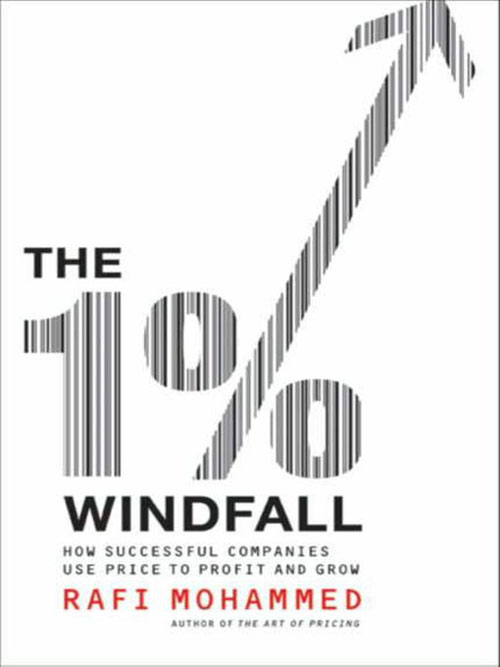
Many new entrepreneurs have a terrible time charging what they are worth, and Rafi Mohammed’s book is the perfect antidote. Generally slanted towards large corporations, the book still has powerful implications for businesses of all sizes when it comes to pricing decisions.
49. Influence: The Psychology of Persuasion
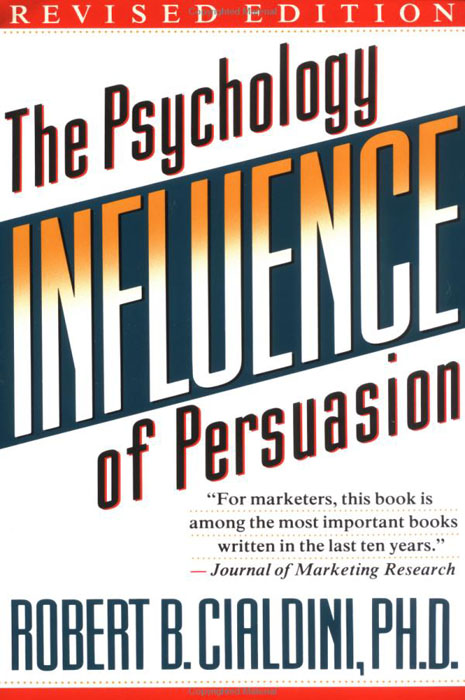
Dr Cialdini’s book Influence (which has been written, rewritten, reissued, and revamped more times than I care to count) is an incredible attempt to apply something resembling a scientific process to the powers of persuasion. As a resource, it’s invaluable not just for making yourself more persuasive, but for also becoming more resistant to the wiles of others, too. It delves into how we influence people, and what methods work the most effectively, techniques that can be devastating if used properly.
48. Positioning: The Battle for Your Mind
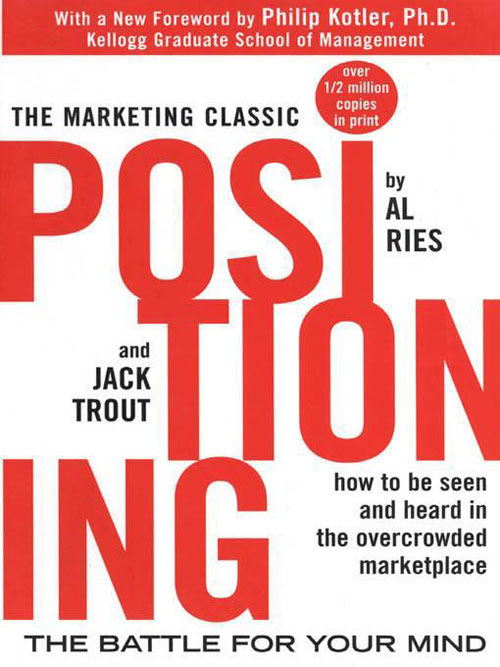
The book Positioning puts forward an intriguing prospect for how to get your business ahead: by “positioning” it within the customers mind through marketing, branding and product management. It’s about developing niches, both in terms of products but also in terms of perception, so that customers remember you, and perceive you as a strong, and able company. Through witty and easy to understand writing, Ries and Trout create a perfect introduction to marketing strategy.
47. Selling the Invisible: A Field Guide to Modern Marketing
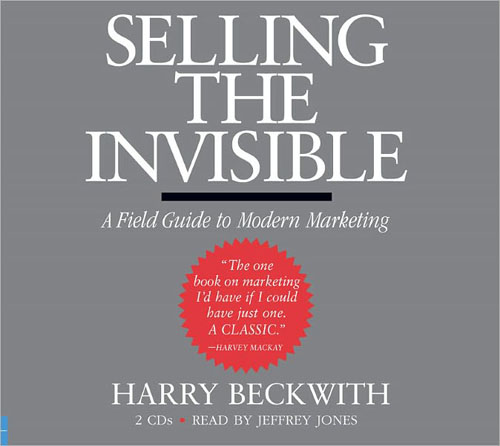
In the modern world of business, most of us don’t have a concrete product to sell. We’re a service based economy, and frankly that’s something much hard to demonstrate and impress people with. Beckwith’s now classic book delves into how to market the intangible, and especially focusing on creating an excellent customer experience so that people will want to come back to you.
46. Zag: The Number One Strategy of High-Performance Brands
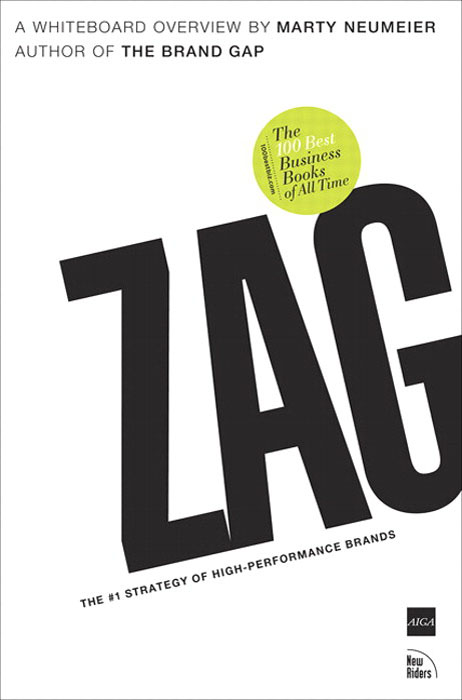
“When everybody zigs, zag.” It’s simple enough in concept, but in practice it can be a devastatingly powerful way of differentiating your company from those around it. In industries with heavy market saturation, differentiation can be the difference between success and failure. Zag shows how to separate your brand from the rest of the pack, and thrive because of it.
45. Secrets of Closing the Sale
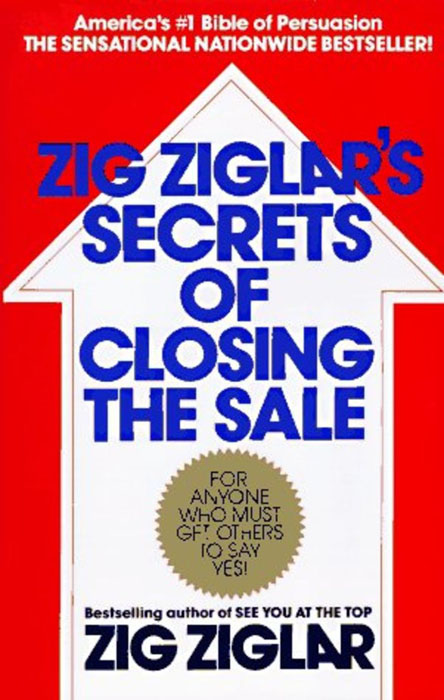
Zig Ziglar’s “Secrets of Closing the Sale” is very much about one of the fundamental building blocks of a good business — the art of the sale. No matter what you do, it’s all about selling. Be that selling your services, selling a product, networking, or anything else, it’s about convincing people that you’re the best there is for what they need. The silver-tongued gift of the gab, which Zig lays down for any and all comers.
44. Purple Cow, New Edition: Transform Your Business by Being Remarkable
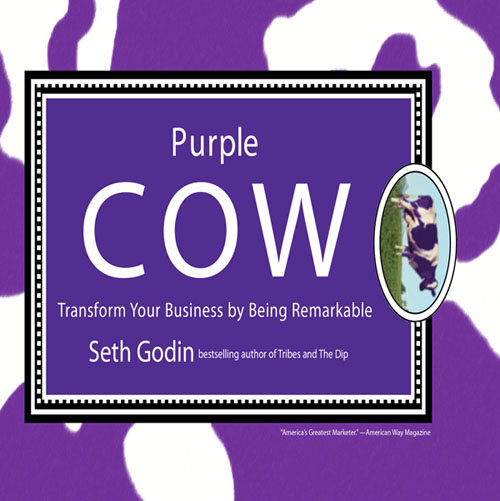
Yet again we hit the touchstone of brand differentiation. Because if customers see your service as identical to everyone else’s, they’re simply not going to come to you. Seth Godin’s 2002 book looked at a number of incredibly successful brands, like Starbucks, Jetblue and Apple, and how they differentiated themselves from all the other companies around them.
43. The Tipping Point: How Little Things Can Make a Big Difference
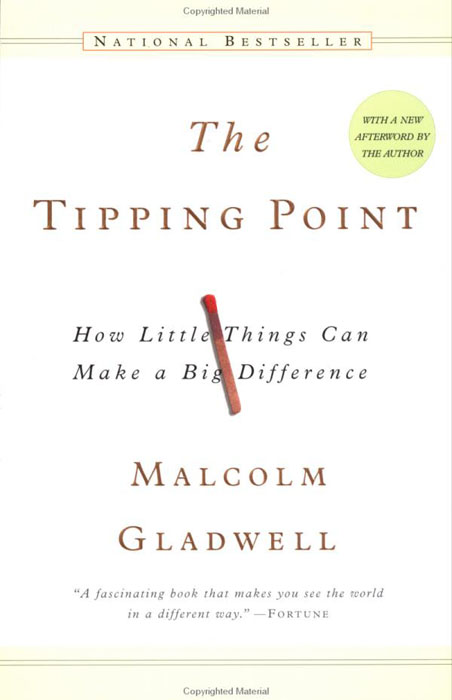
Gladwell’s book from 2000 is pretty much the textbook of the viral marketing revolution, a look at how getting information into the right place can cause a “tipping point”, a critical mass of little factors that come together to create an enormous change. It’s a tipping point that pushes a book into popularity, or starts a fashion trend. Gladwell looks at powerful individuals who can spread information, and how a tsunami of small changes can add together to a major paradigm shift.
42. The HP Way: How Bill Hewlett and I Built Our Company
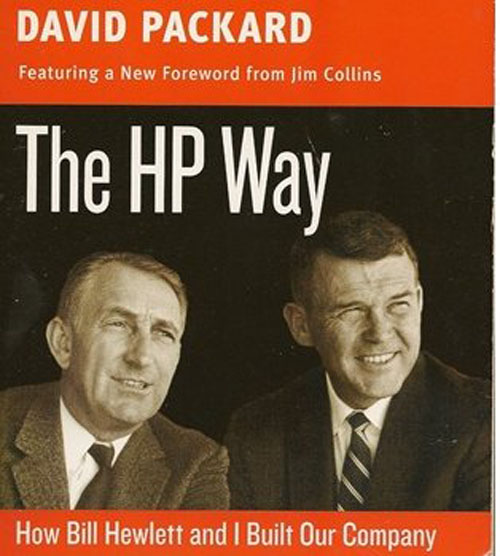
HP is floundering right now. Years of incompetent leadership has left the company poor, with many horrific purchases under their belt, and a toxic board. But if you look back a few years, to when HP was at the top of its game and were a bleeding edge tech company, much of their success goes back to the actions of the titular Hewlett and Packard. HP’s management style came to define successful engineering companies, and remains a crucial resource for anyone in the tech world.
41. Steve Jobs
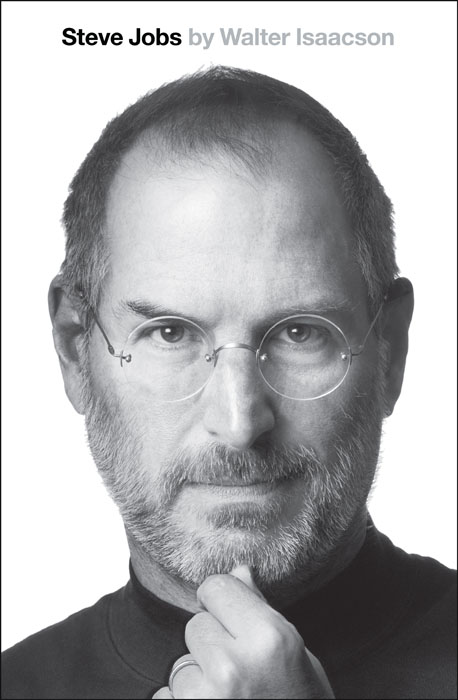
Steve Jobs’ death in 2011 pushed forward the release of his warts and all biography by Walter Isaacson. While Jobs may not have been a nice or pleasant individual, he was an excellent businessman who demanded perfection from his staff. He revolutionised user interface, and created a world of design and industrial art that has influenced the entire world of technology. Sure, he was a prick, but he was truly good at what he did.
40. The Art of the Start: The Time-Tested, Battle-Hardened Guide for Anyone Starting Anything
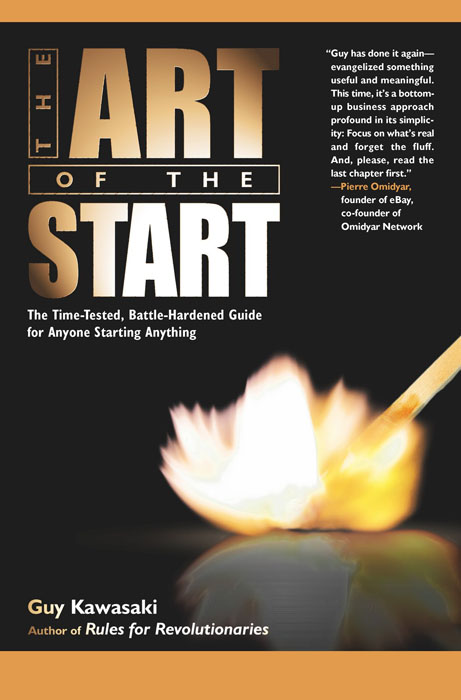
Everyone has an idea for a business. Ideas are cheap. What’s expensive and hard and sometimes utterly soul destroying is turning that idea into a successful business. This is where Guy Kawasaki’s book comes in, a manual for the entrepreneurs attempting to go from pitch to an established brand and product, and all the steps in-between. A must read for startups, it clearly lays out how to get your idea off the ground.
39. Guerrilla Marketing
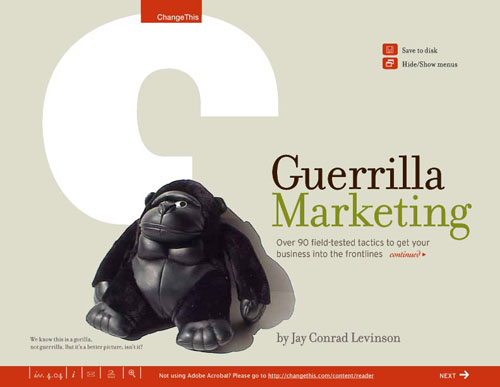
Levinson’s Guerrilla Marketing keeps getting reprinted, because it’s simply a fantastic read that provides a huge amount of information. First published in 1983, it pushed forward the radical idea that traditional advertising campaigns were sub-optimal, and lead to the birth of guerrilla, and the more modern viral, marketing. Rather than rely on the traditional methods of marketing, Levinson urges alternative platforms and paths that can allow better penetration for less outlay.
38. The Rise of the Creative Class: And How It’s Transforming Work, Leisure, Community, and Everyday Life
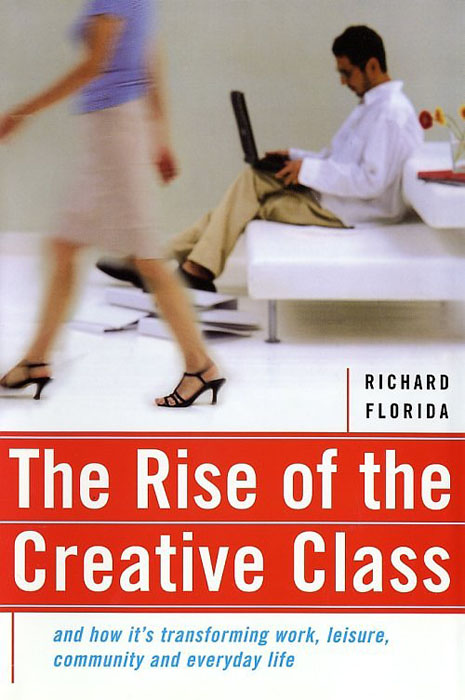
With the decline of manufacturing in the USA and much of the industrial world, workers have adapted to other types of work. Many transitioned to the service industry, but this book chronicles the rise of the “creative class” — writers, artists, bloggers, musicians, scientists, and more. In 2003, the creative class was a full 30% of the workforce, and they’ve only grown since then. In the time of freelance programmers and coffee shop journalists, this book looks at a massive growth in a new demographic and how it changes the face of the world.
37. The Wisdom Of Crowds
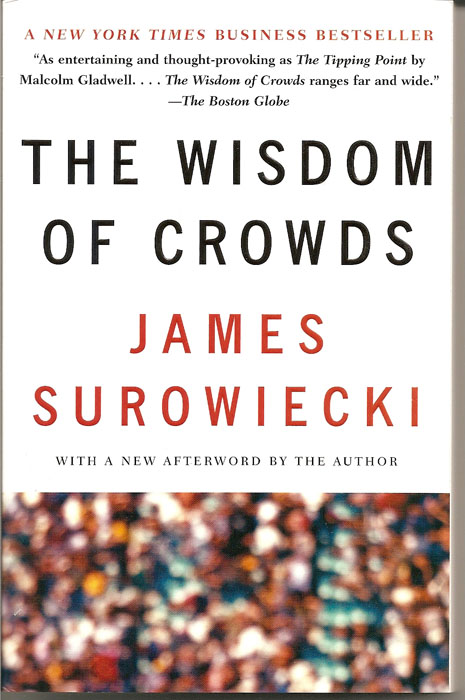
The general thought is that enormous crowds of people are stupid, unruly mobs, ruled by their worst instincts. Surowiecki posits the opposite, that the crowd is in fact smarter than specifically trained elites. Through the power of the masses, the book looks at how they’re better at making decisions, solving problems, and creating innovation. To a certain degree you see this with crowdsourcing, but huge groups can still bring out the worst in people.
36. The Lexus and the Olive Tree
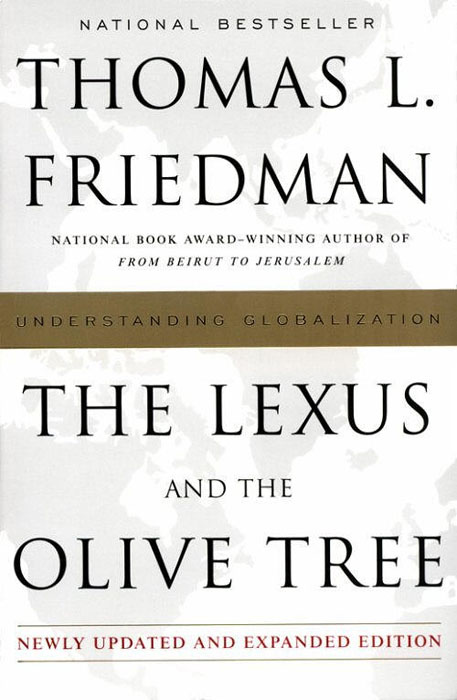
New York Times Foreign Affairs columnist Thomas L. Friedman wrote the Lexus and the Olive Tree as a way of analyzing the incredible power of globalization in the world right now. In a system where everyone is interconnected at a previously unforeseen level, where you can email a manufacturer in China to send a product to a packaging plant in Africa, understanding the globally holistic nature of business is crucial.
35. The 48 Laws of Power
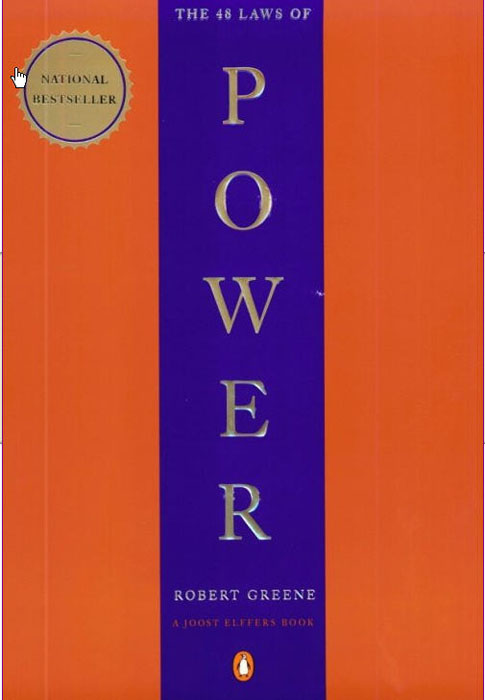
For the geeks in the audience, consider this a real-life version of the Rules of Acquisition. Thousands of years of graft, management, rulership and ruthlessness compressed down into a slim 48 rules on how to take power, and crush your enemies beneath your corporate bootheel. This is not a pleasant title, it’s a warriors guide to business. Amoral, cunning and vindictive, if you follow it’s advice you’ll be a horrible person. A rich, horrible person.
34. The Practice Of Management
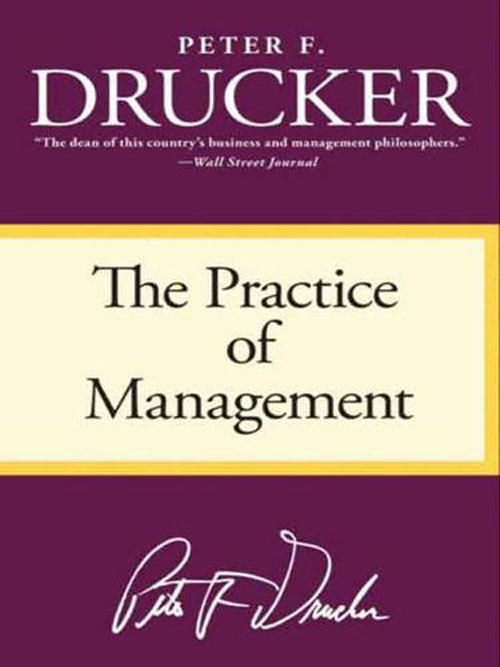
In modern business, the Practice of Management is something of a classic. First published in 1954, it’s been a bible of how to handle business and your subordinates for generations of managers and leaders. While now much of the advice may seem trite and obvious, it was a trendsetter, and laid down the groundwork for much of what we consider completely standard now.
33. When Genius Failed: The Rise and Fall of Long-Term Capital Management
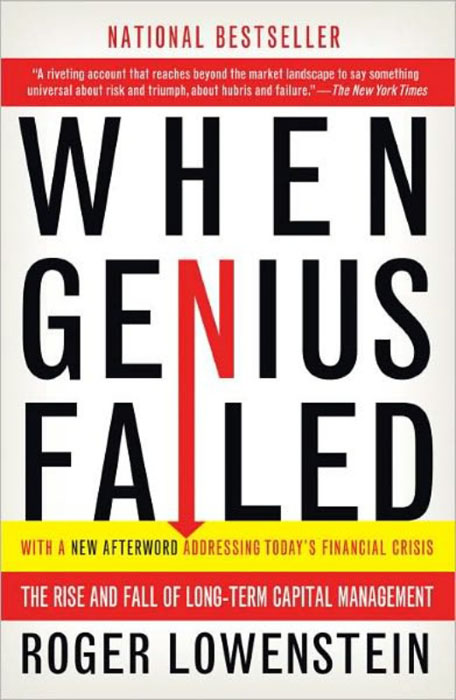
In a world where hedge funds are currently reviled as being major players in the current economic crisis, this book tracks the rise and fall of one of the biggest hedge funds of all time: Long-Term Capital Management. From 1994 until its collapse in 2000, Lowenstein chronicles the story of this company, it’s meteoric rise and catastrophic fall. Eventually bailed out by the government, LTCM was a taste of the chaos that happened ten years later.
32. In Search of Excellence : Lessons from America’s Best-Run Companies
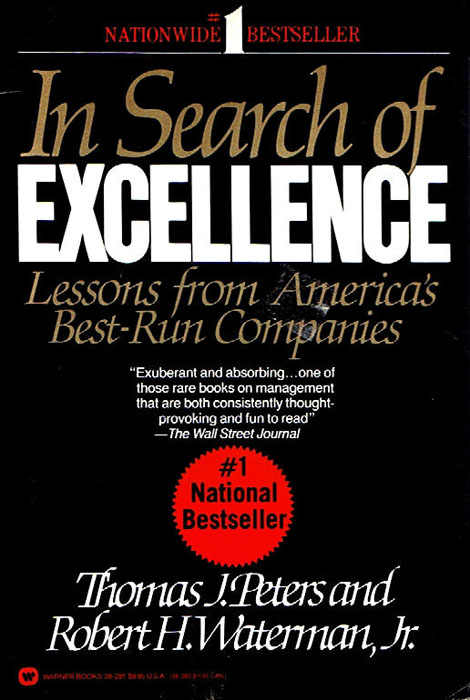
In Search of Excellence is a report compiled by a group of McKinsey consultants who looked at 43 of the biggest and most successful companies in the USA, and what they did to get there. An incredible resource of management tips and analysis, it’s not a book without flaws. You have to buy into the McKinsey 7-S framework of business descriptions, or else much of the analysis doesn’t work.
31. Permission Marketing : Turning Strangers Into Friends And Friends Into Customers
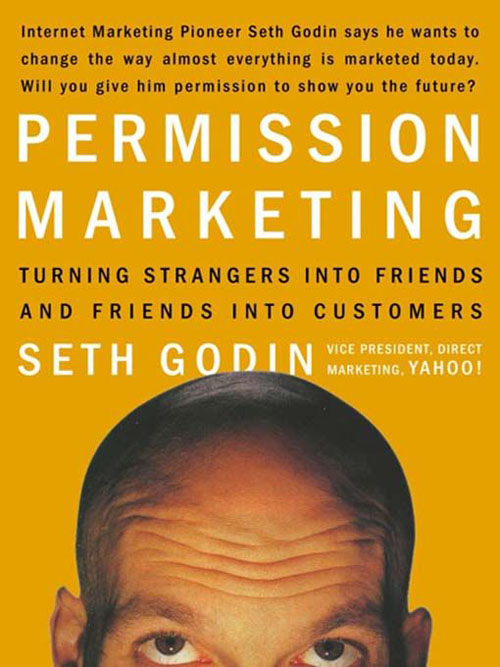
Seth Godin’s Permission Marketing looks at a fundamentally different way of marketing. He talks about advertising that’s inclusive rather than intrusive. Rather than ads that butt into your shows and reading, ones that create a relationship with the viewer, and entice them into becoming a customer. It’s as much a book about creating an excellent customer connection as about advertising, it’s a goldmine for how to avoid some of the worse advertising practices that abound.
30. Barbarians at the Gate: The Fall of RJR Nabisco

Barbarians at the Gate was a breakthrough book, and introduced the world to the corporate tell-all, the well written dissection of the destruction of a company. The book tracks the fight for RJR Nabisco during October and November of 1988. The largest takeover ever attempted, it was seen as an endemic representation of the excesses of that decade. A brutal and behind the scenes look at mergers and acquisitions, it’s a stunning and breathtaking read.
29. Built to Last: Successful Habits of Visionary Companies
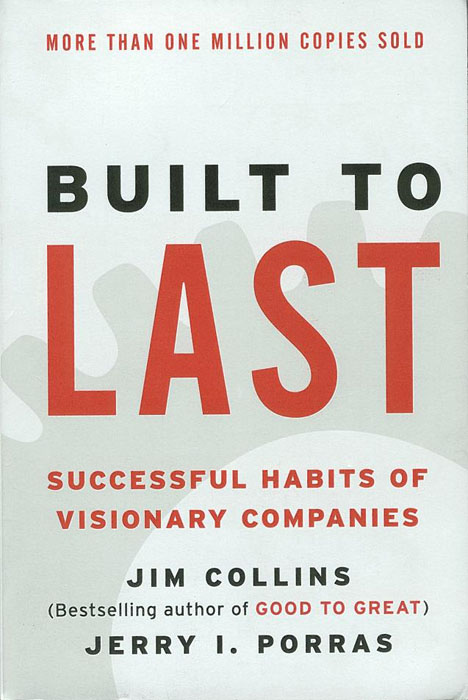
Based on an incredible body of research from Stanford, rather than focus on leaders and products which redefined industries, Built to Last instead focused on a number of long-lived companies. These 18 corporations like General Motors, HP and Disney all survived decades of turmoil and strife. While some of them are in slightly worse shape in the current economic climate, the basis for their longevity is well worth investigating.
28. The One Minute Manager
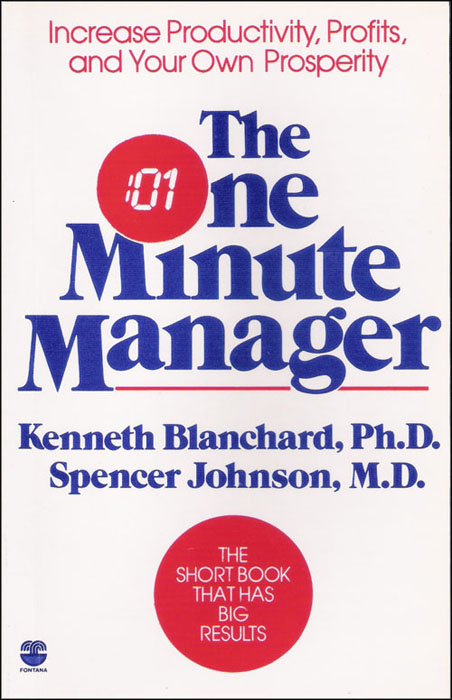
First published in 1982, The One Minute Manager was a revolutionary and highly influential book when it landed. It fundamentally broke down much of the business of management into creating small and achievable goals and actions, improving motivation and performance. Small enough that you can burn through it in a quiet afternoon, and get at a book that is incredibly effective.
27. First, Break All the Rules: What the World’s Greatest Managers Do Differently
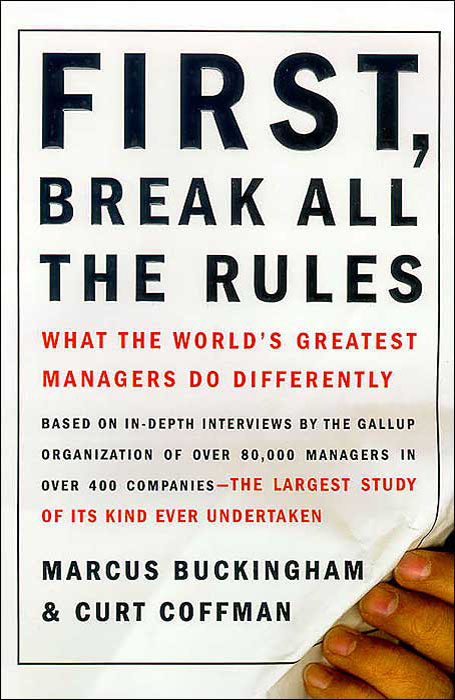
So much of this list is creating guidelines for how to successfully perform, where so many truly great leaders succeed by doing the opposite. Break All the Rules shows how the best of the best do it, despite breaking rules we’d consider iron clad, and why it works for them.
26. The Creative Habit: Learn It and Use It for Life
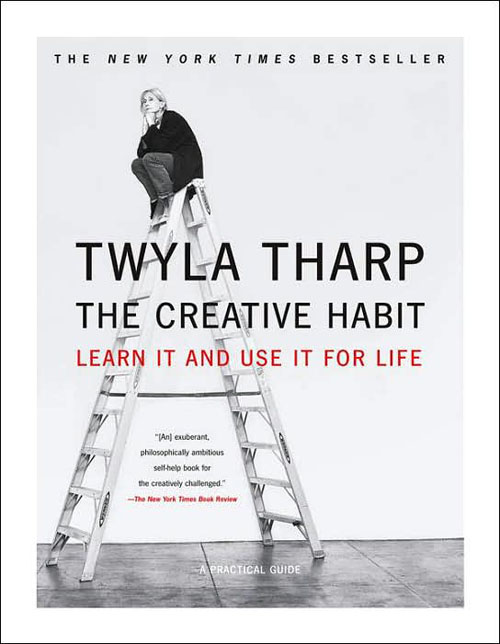
Creativity exists in more than people who have outwardly creative professions. In fact, being creative can be the key difference in differentiating your business from that of everyone else’s. The Creative Habit is about the work of inspiration. Getting yourself to take creative actions on a day to day basis until they’re a habit, and then tapping that ability.
25. The One Thing You Need to Know: … About Great Managing, Great Leading, and Sustained Individual Success
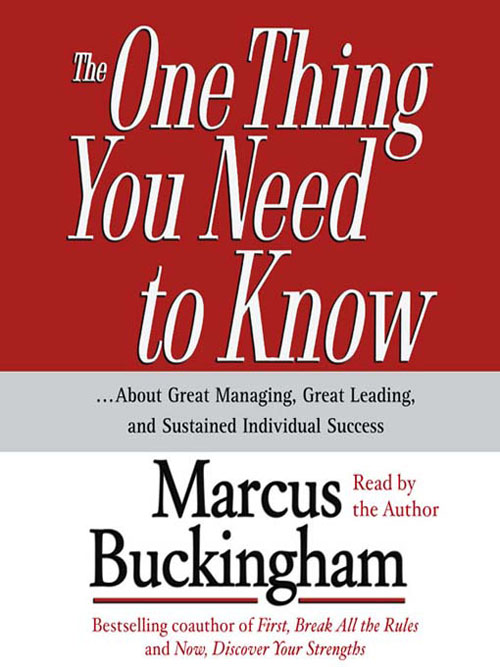
Following on from his success with First Break All The Rules, Marcus Buckingham went on to write two more books, including The One Thing You Need To Know, which focused on the three most important and fundamental areas of professional activity. That would be the titular management, leadership, and individual success. Drawing on a number of sample cases, he demonstrated simple truths at the heart of success in all these regions.
24. The Five Dysfunctions of a Team: A Leadership Fable
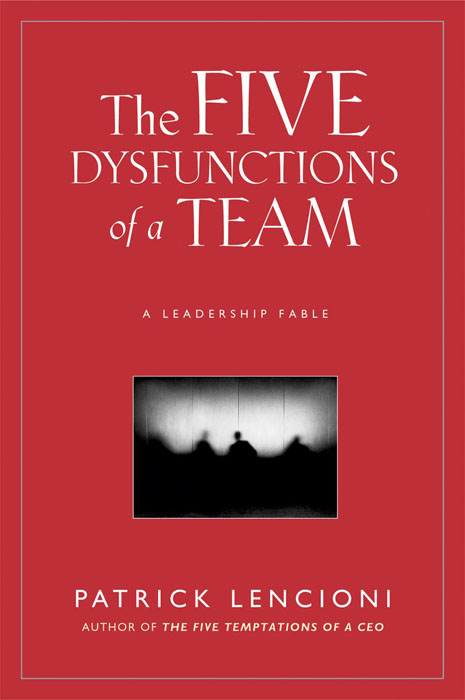
The J-B Lencioni Series by Patrick Lencioni are a series of “fables” written as guides for managers and leaders to better understand their roles and how to deal with others. Labelled as “fables”, these books are stories told with very specific lessons in mind. Hardly subtle, but nonetheless informative, they at least breakaway from the usual somewhat dry formula you see in many of these entries.
23. The 80/20 Principle: The Secret to Achieving More with Less
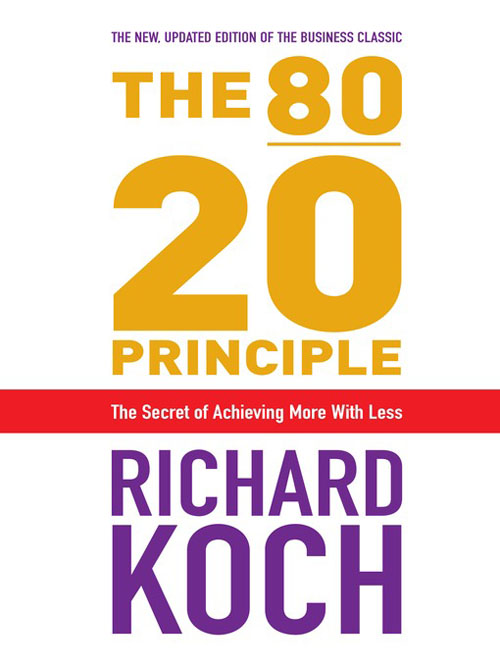
The 80/20 Principle is at its heart a very simple idea: 80% of results come from 20% of the effort. This can mean that 80% of revenue comes from 20% of customers, or that 80% of my writing comes from 20% of my time (the rest is spent playing around on the internet). Koch’s book shows you how to efficiently tap into this ratio to get the maximum output for the minimum work.
22. Drive: The Surprising Truth About What Motivates Us
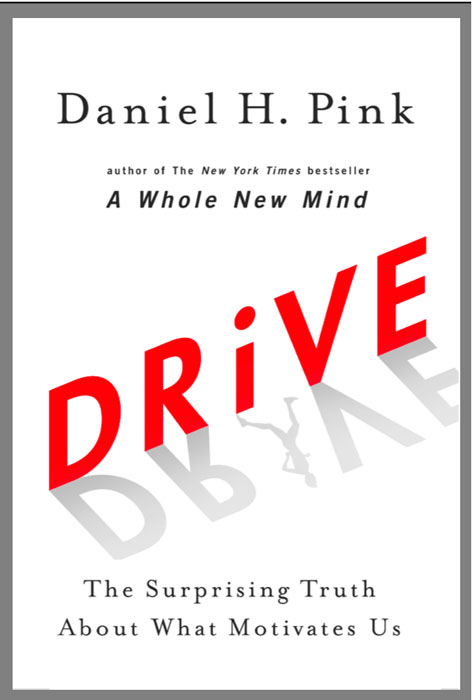
Everyone struggles with motivation. Be it professional, personal, or romantic, getting together the energy to attempt something — and even more to stick with it — can feel impossible inside the world of apathy. Pink’s book argues that what actually manages to motivate people repeatedly and perpetually isn’t some sort of payoff at the end, but rather a sense of self-direction, a desire to learn, create, and better the world around us,
21. Leadership and Self Deception: Getting Out of the Box
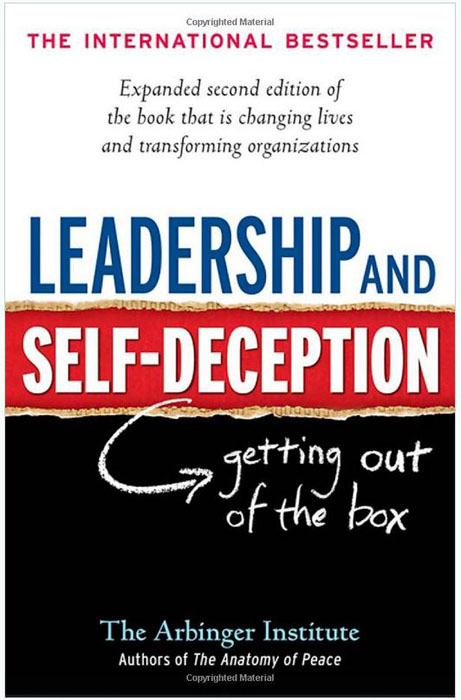
First published in 2000, this book didn’t sell hugely well to begin with, instead slowly picking up steam over a number of years. This book posits something very interesting about leadership — namely that the best actions in the world won’t matter if you do them for the wrong reasons. Anyone who has been stuck under a cruel but competent boss knows this well enough, as people work best under leaders they feel actually care about them. If you’re in it for purely mercenary reasons, you may have trouble.
20. Your Money or Your Life: Transforming Your Relationship with Money and Achieving Financial Independence
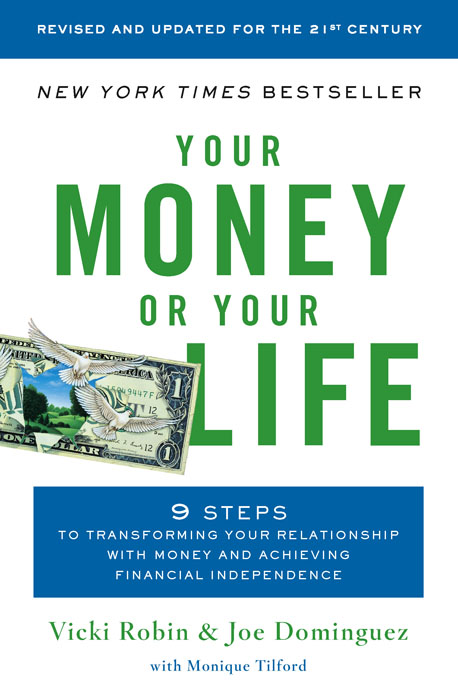
Despite having a title picked from British highwaymen, in the 20+ years since Your Money or Your Life was published, it’s remained a firm favorite, and maintained a significant following. In fact the author runs a WordPress blog continuing on the advice that carries from the book. Focusing on how to teach people to sanely handle the money they do have, it’s as much a lifestyle guide as a financial one.
19. Crucial Conversations: Tools for Talking When Stakes Are High
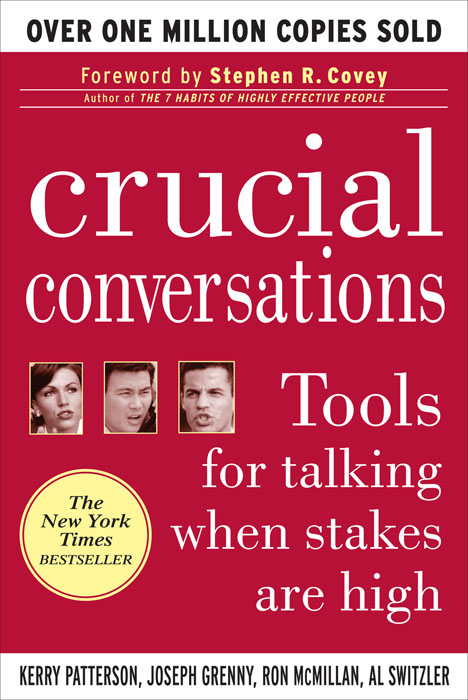
Written by the quartet of Kerry Patterson, Joseph Grenny, Ron McMillan, and Al Switzler, this New York Times bestselling book really boiled down one of the key skills of a high-stress business environment: how to talk to people. While that may sound like an easy enough task, and for many day to day tasks it is, but it can easily turn extremely difficult. With lessons on how to talk to the angry and frustrated, it’s an incredibly useful book.
18. Success Built to Last: Creating a Life that Matters
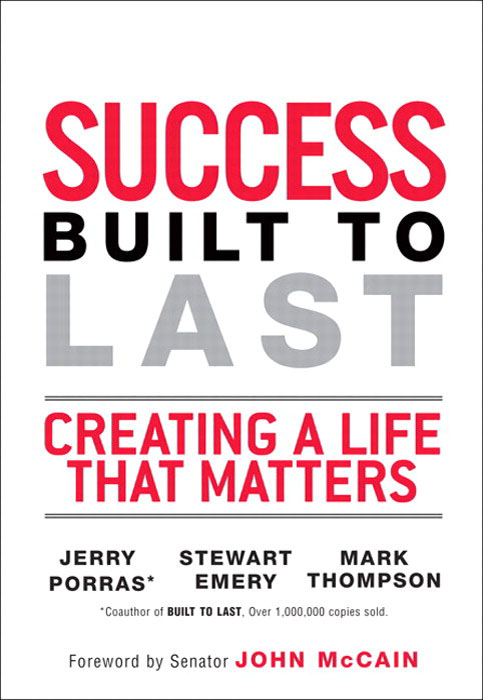
It’s very easy for a book to attempt to quantify what made certain individuals successful more than others, but Success Built to Last went one step further. They actually talked to and interviewed some 200 people for this book, about how they grew and developed in their industries and live. Bill Clinton, Jeff Bozos, Warren Buffett, Maya Angelou and more all offer their insight.
17. Axiom: Powerful Leadership Proverbs
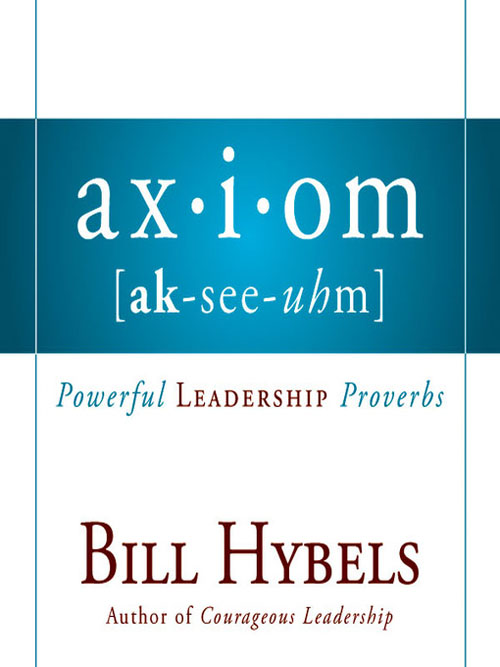
Bill Hybels is the leader of the large and powerful Willow Creek Community Church, and his book Axiom approaches the skills needed for leadership from the perspective of a church leader, and a man revitalizing the Christian community. Intensely and unapologetically evangelical, his work isn’t for everyone, but his fans are many and vocal.
16. Competitive Strategy: Techniques for Analyzing Industries and Competitors
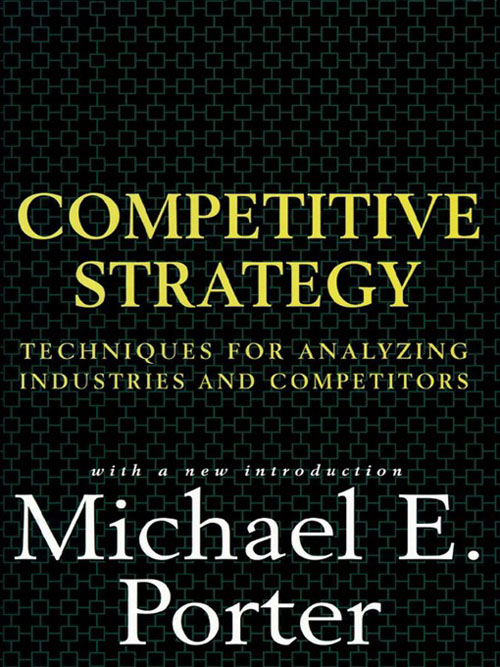
Now hitting a ludicrous 60th printing, Competitive Strategy has been incredibly popular ever since it was first published in 1998. Available in 19 languages, it’s considered a business classic, thanks to focusing on simple and universally applicable basics. He focuses on what makes a business competitive: lowest cost, differentiation, and focus, and how competitive advantage is crafted.
15. The Millionaire Next Door
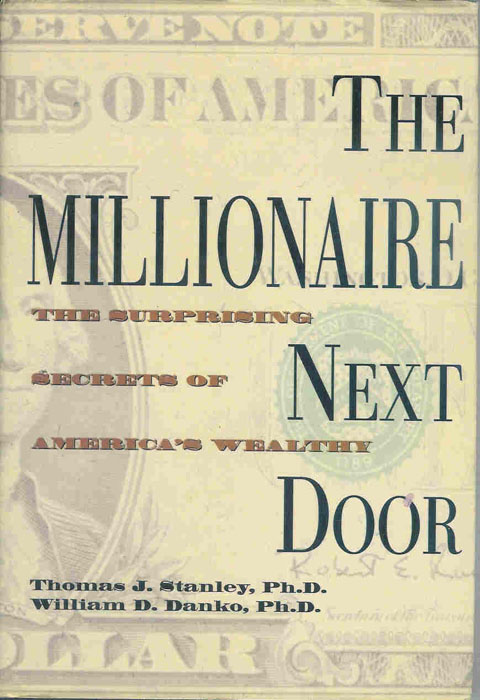
Now almost 15 years old, Millionaire argues that the vast majority of the wealthy aren’t showy stars on TV, but rather those who quietly and wisely make money. By analyzing the rich, this book picks seven factors which seem to be the most common traits of millionaires, laying bare many which may sound like common sense, but are remarkably adroit when you dig deeper.
14. The Smartest Guys in the Room: The Amazing Rise and Scandalous Fall of Enron
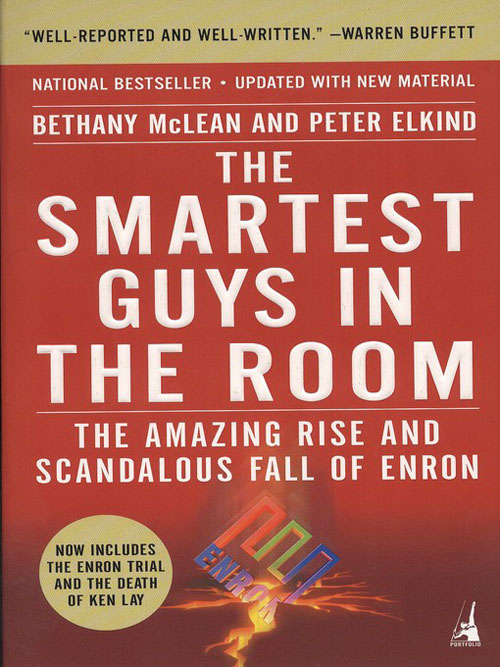
The fall of Enron was a financial disaster that was heard around the world. Their financial maleficence was hidden so well for so many years that when it finally fell apart, and the executives walked away still rich while employees were devastated, the world was left agog. McLean and Elkind’s incredible look at what happened behind the scenes opened the eyes of millions of people to just how underhanded and corrupt the whole business was.
13. Moneyball
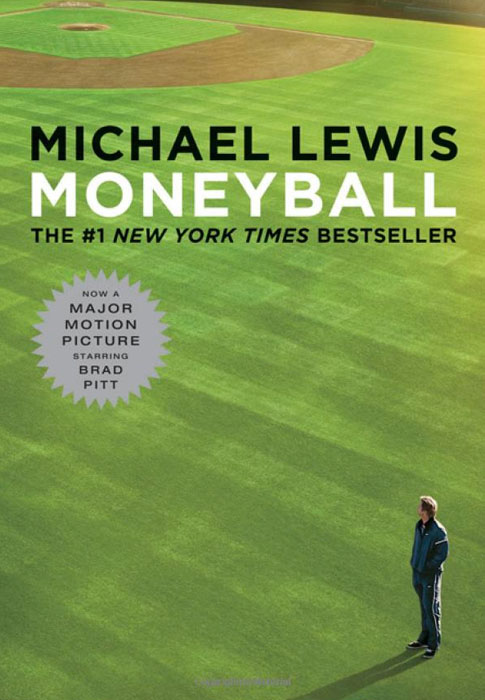
Recently adapted into an incredibly successful movie, Moneyball by Michael Lewis was about how the Oakland A’s general manager completely changed the face of baseball. Rather than spending all the team’s money to hire the best players (and still not being able to compete with the richer competitors). Instead, he used careful statistical analysis to gather players with skills that were not usually considered nearly as valuable, and in doing so took the tools of business into baseball.
12. The Toyota Way
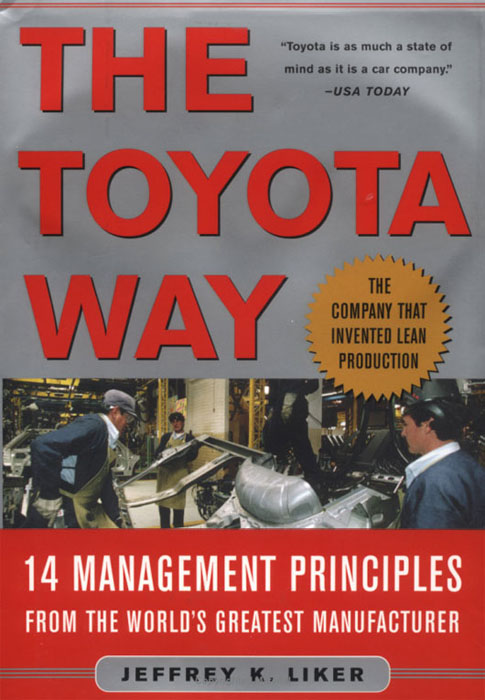
There have been dozens of different iterations and versions of Jeffrey Liker’s incredibly influential The Toyota Way, and there’s a reason for that. His account of the corporate culture at Toyota that propelled the company into worldwide success for decades is an incredible one, and one that can be applied to just about any industry. Based on principles of lean production and constant improvement, it’s an enlightening look into how the company succeeded so long for so well.
11. The Prince

Machiavelli’s the Prince is a Renaissance era treatise on sociopathic ruling. Completely amoral, it’s solely concerned with consolidating power in the most efficient way humanly possible. While some current historical work seems to suggest that it may have been written as satire, it has nonetheless been used as a guidebook for people in any and all fields who want to improve their lot, and are willing to damn any that come against him.
10. The 4-Hour Workweek: Escape 9-5, Live Anywhere, and Join the New Rich
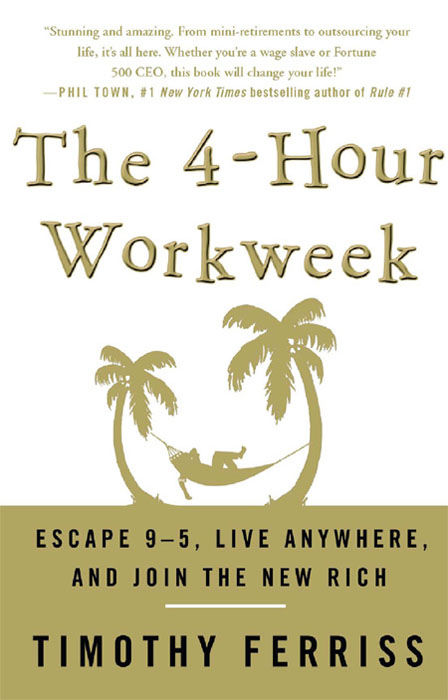
Timothy Ferriss is a controversial figure. Unarguably endowed with the gift of the gab, he got his start selling nutrition supplements of dubious value, and managed to parlay his success into a book empire. While his book is a quick and easy read, it does have some valuable information — but it pays to remember that these methods worked for him, and might not for you.
9. Liar’s Poker
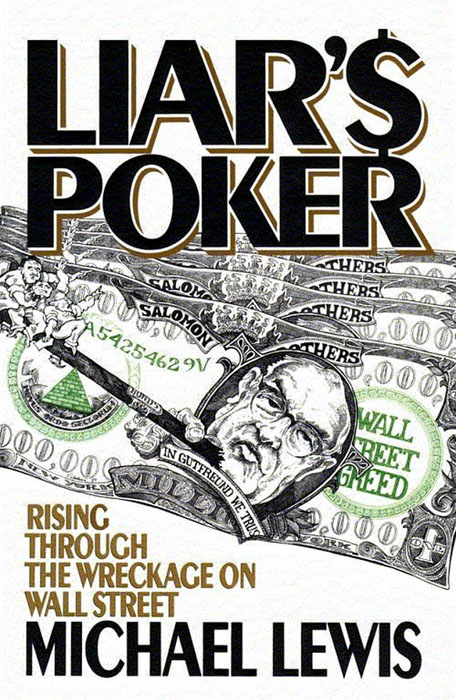
For many, the 1980s defines an era of rampant consumerism and abuse, where traders thought of themselves as indestructible, and were willing to take all comers. Lewis’ story about graduating from the London School of Economics, and joining the brutal and cutthroat world of Wall Street is an incredible one. These young men gambled with millions, attempting to bluff and out manoeuvre one another in financial transactions that shook the world.
8. The Art of War
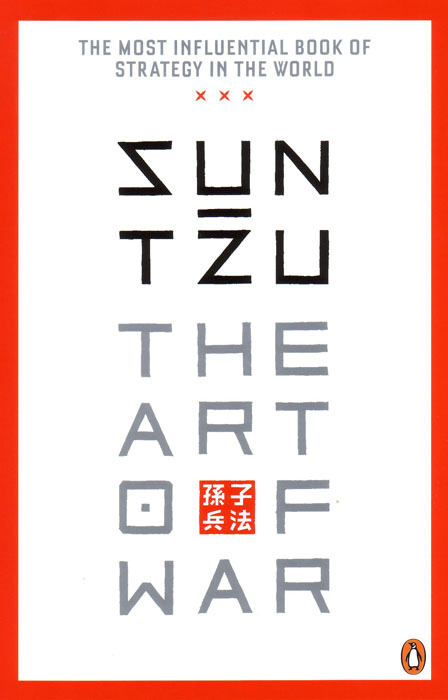
Anyone who doesn’t think there are similarities between business and war knows neither. Sun Tzu’s Art of War was the preeminent book of military thought and strategy for millennia. Written more than 2,000 years ago as guide for military strategists in ancient China, with only a bit of lateral thought its lessons equally apply to the world of modern business. While they may seem oblique at times, the lessons therein are incredibly important. Strategy is strategy.
7. An Inquiry Into the Nature and Causes of the Wealth of Nations
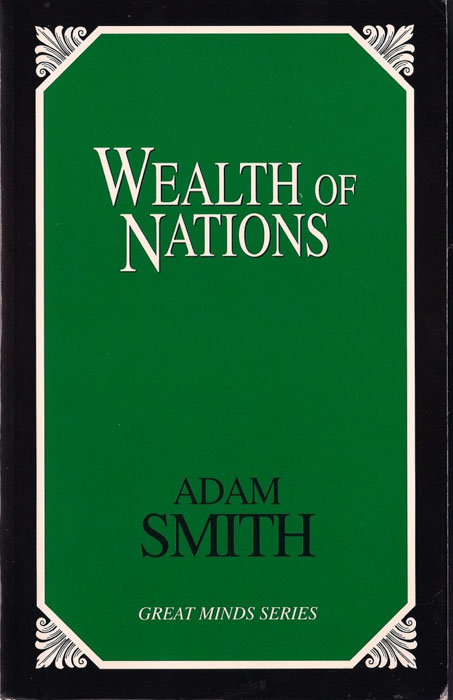
Adam Smith’s The Wealth of Nations is essentially the origins and bible of modern-day laissez-faire capitalism. Too many people don’t understand the philosophical underpinnings of our financial system, especially on a macro-economics scale, which is precisely what Smith lays out. Smith not only championed the free market, but also worried that too much power to the corporations would lead to abuse of the individual. While the language and length might perhaps be a bit hard for modern audiences, it’s well worth the work.
6. Getting Things Done: The Art of Stress-Free Productivity
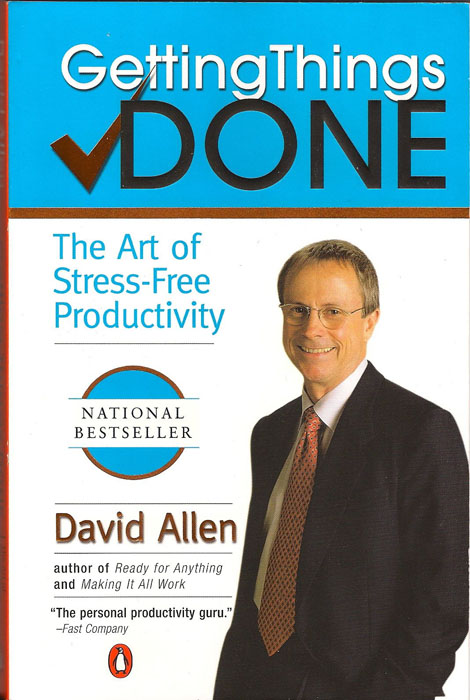
Face it, one of the major problems with getting things done is…well…getting things done. Everyone procrastinates, and discovering how to beat that problem is the key to being efficient and productive. Allen’s approach in Getting Things Done has taken on a life of its own on the internet, with millions of users swearing by his system. Hey, if it’ll help you get through all your work, then it’s worth a try.
5. How to Win Friends and Influence People
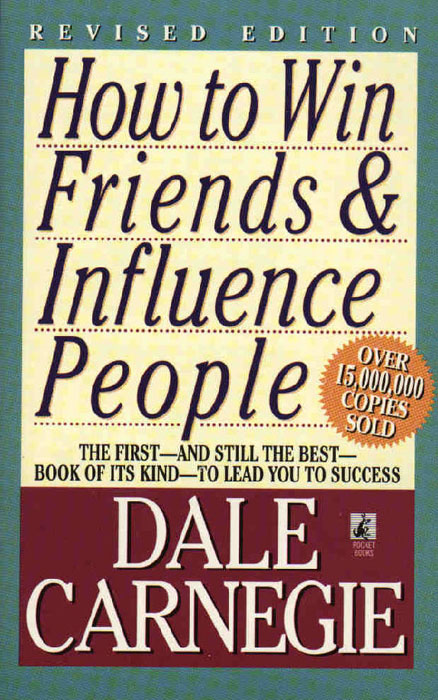
1936. That’s how long ago How to Win Friends was published. 75 years of being one of the most popular and influential self-help books of all time. It’s sold millions of copies over the years, and still remains important to this day. Much of the advice has been absorbed into other books and methods, but Carnegie designed his style to help his students become good salesmen, and it remains invaluable to this day.
4. The E-Myth Revisited: Why Most Small Businesses Don’t Work and What to Do About It
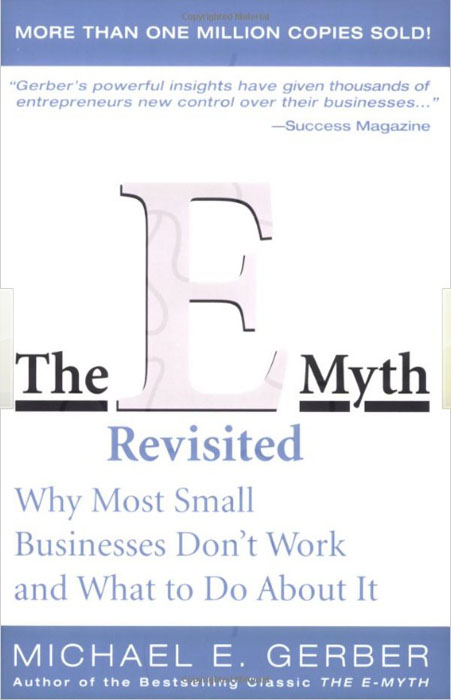
Despite its title, this book has nothing to do with anything electronic — though the lessons are still valuable. Instead, it’s a 1995 rework of an older edition, which looks at what causes small businesses to fail. It’s a well known fact that a huge percentage of small businesses never really get off the ground, and Gerber’s work looks at where most of them fail.
3. The 7 Habits of Highly Effective People
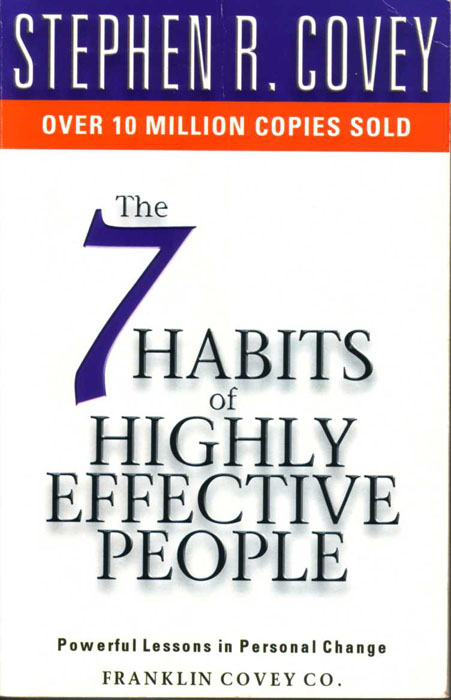
Another classic in the fields of both self help and business, 7 Habits was published in 1990 and has sold 10 million copies in the intervening decades. A manual of both personal and professional skills, it’s a guide on how to be a better person, and from this succeed more, both in your private life and in business. These aren’t all easy things to do, Covey demands a paradigm shift in how you see yourself and the world, but for many the payoff is worth it.
2. Good to Great: Why Some Companies Make the Leap… and Others Don’t
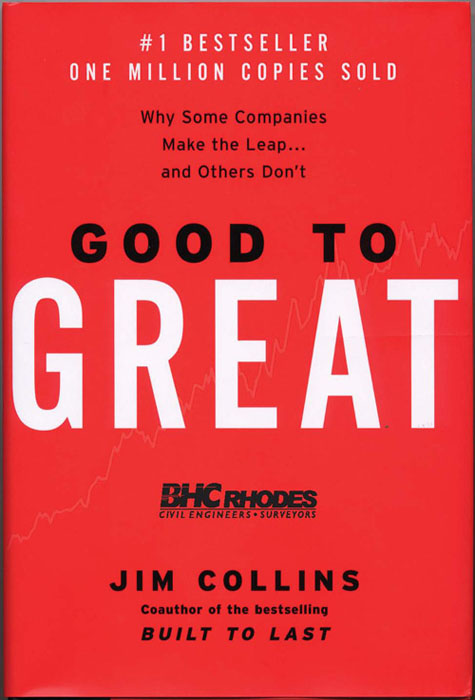
What differentiates a company that gets by from one that does well? And them from one that truly, truly succeeds? Jim Collins wrote Good to Great to analyze the difference between the good and the great in the business world, and how certain companies manage to make the transition. He argues that even companies without greatness inherent can last and thrive, if they behave in the right way.
1. The Innovator’s Dilemma: The Revolutionary Book That Will Change the Way You Do Business
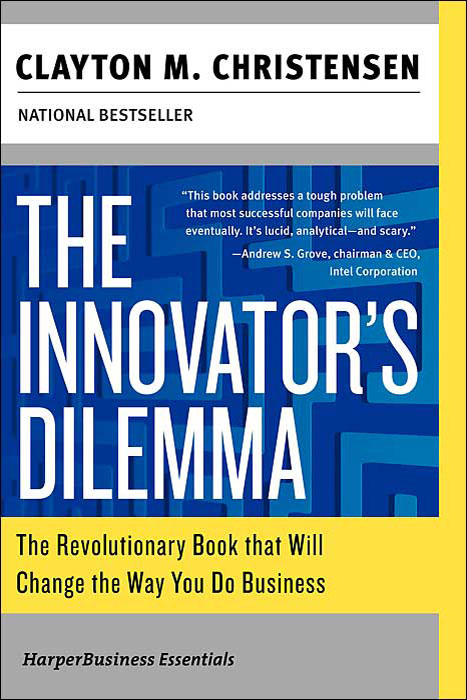
Even if you follow every rule on this list, if you do everything right, there’s a chance your business might not succeed. It might not get off the ground, or even worse, it might go well for a while before falling apart. That’s where the Innovator’s Dilemma comes in, which works to show how good companies fall, and what it takes to push into the market, and grow. Christensen focuses on the idea of “disruptive technologies”, new waves of innovation which fundamentally change the landscape of business, and need to be successfully identified and used in order to succeed. Easy to read and provocative, it is a modern classic, and arguably the best business book around.




